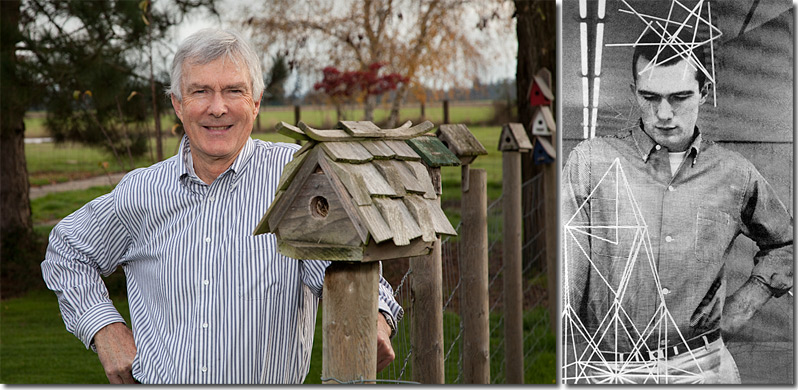|
In January, 1960, LOOK featured a series of portraits of typical Americans to illustrate their predictions for the coming decade of the 60s. John Frohnmayer was chosen as the example of young people. In the article, writer William Attwood asserted, "The next ten years may be the most exciting in mankind's 100,000-year adventure on earth. At long last, we are about to begin the exploration of the mysterious universe that surrounds our planet. At the same time, we are faced with the choice of giving up organized tribal warfare or perhaps ending this long adventure by thermonuclear suicide." The future was open to either possibility.
For that edition, LOOK commissioned a survey by the new Gallup Poll. They found that most Americans expected their lives to soar in the coming decade.
- Most Americans were confident there would be continued peace and prosperity.
- They were satisfied with their home lives, their work and their communities.
- Most believed in God and went to church at least three times a month.
- The opinions and attitudes of most teenagers differed very little from adults.
The young Frohnmayer fit the profile. "Keep busy and believe in God," he told the author. Frohnmayer was described as "serious-minded and conservative." He was photographed in science class, playing the trombone, playing football, dancing with a date and looking at a work of art. "I grew up in a family that went to church regularly, and I didn't stray very far from the dogma that I grew up with until I started to really examine those things in late college and graduate school."
Graduate school was actually seminary, but instead of producing a minister his studies produced a lose of faith in religion. "You start questioning and knocking out all the props that you just sort of accepted as true." He says now he has a sense of spirituality but does not attend organized church.
In graduate school, Frohnmayer felt the impending heat of the draft. "Every male knew that your number could come up and you would be shipped off to the jungle," he says. "While civil rights was the motivating influence in the first part of the decade, the fact that I might be drafted and sent off to Vietnam to fight in this way that shouldn't be happening, that I disagree with, and 'I'll be damned if I want to get killed there' – that kind of sense was what really drove the rest of that decade."
|
 |
Frohnmayer enlisted in the Navy to avoid the infantry and was accepted into Officer Candidate School. The Navy made this history, political science and theology major into a ship's engineer. After OCS school, he served on a cruiser that was the communication ship for an Admiral and occasionally shelled Viet Cong targets from off the coast of Vietnam. His ship, the USS Oklahoma City, was steaming back to port in Japan when the North Vietnamese attacked in strength during the January 1968 Vietnamese holiday known as Tet. It was a surprise attack all across the South. The ship turned around and steamed full speed back to Vietnam. "We were chasing a typhoon and actually caught the typhoon," Frohnmayer says. "There was green water coming over the bridge of this cruiser. The bridge was, I don’t know, three stories off the surface. It was pretty scary. I'm down in the engine room hearing these rivets pop, thinking, 'Boy this is a World War II hull. I don’t know if we're going to survive this or not.'"
Even though he was awarded a Navy Commendation Medal for trying to save a civilian who had fallen from a nearby ferry, he's modest about his service. "I'm a Vietnam veteran, yes. I'm a war veteran, yes. But we were not in the jungle. That's a huge difference." He is not alone in his modesty. Of the 2.5 million Americans who served in the Vietnam War theater, only 10 to 25 percent are estimated to have actually served in combat.
After the Navy, Frohnmayer became a lawyer and gradually got involved in the Oregon arts scene.
In 1989, he was appointed by President George H.W. Bush to head the National Endowment for the Arts (NEA) – and fired by Pres. Bush three years later after a roiling controversy over sexuality in the arts. He ran for the U.S. Senate as an independent in 2007. He didn't win. He remains articulate about politics and the arts.
"The decade of the 60s was an extraordinarily violent decade in every which way you can cut it," he says. "The assassinations, the war, the riots, the protests, the sort of sense that things are flying apart here... I think the 60s woke America up to a lot of things that should have happened a long time ago."
Most Sundays you can find him on the Willamette River near Corvallis practicing competitive rowing with a group of serious rowers.
|






